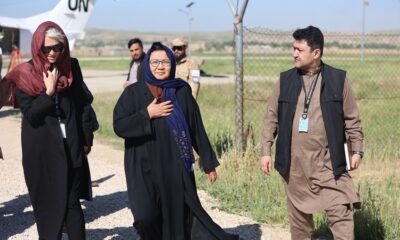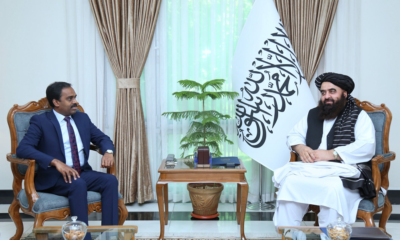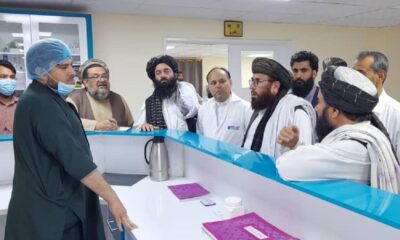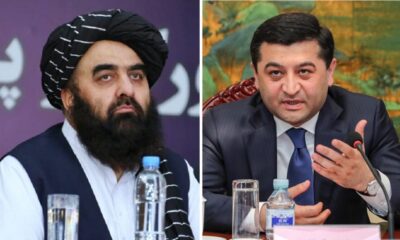World
Iran, Europeans meet to test diplomacy with Trump term looming
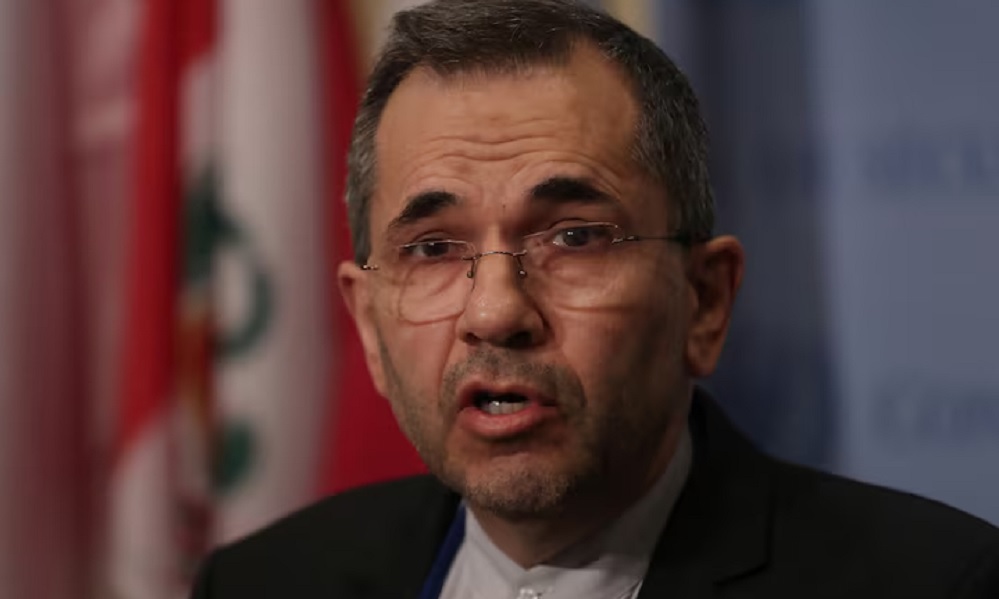
European and Iranian diplomats meet on Friday to discuss whether they can engage in serious talks in the coming weeks to defuse tensions in the region, including over Tehran’s disputed nuclear programme, before Donald Trump’s return to the White House.
The meetings in the Swiss city of Geneva, where world powers and Iran achieved a first breakthrough in nuclear talks more than a decade ago before reaching a deal in 2015, are the first since the U.S. election, and aim to see whether any momentum can be built ahead of Jan. 20, when Trump is inaugurated, Reuters reported.
Iran’s deputy foreign minister and senior nuclear negotiator Majid Takhteravanchi meets with top diplomats from Britain, Germany and France, known as the E3, on Friday, having met the EU’s chief coordinator on Thursday evening.
The level of distrust between both sides was highlighted when the E3 countries on Nov. 21 pushed ahead with a resolution against Iran that tasked the U.N. atomic watchdog with preparing a “comprehensive” report on Iran’s nuclear activities by the spring of 2025 despite last ditch, but limited Iranian pledges to curb uranium enrichment.
That makes the Geneva meetings more of a brainstorming session focused on their mutual concerns over how Trump will handle the dossier, diplomats said.
European, Israeli and regional diplomats say his planned administration, which includes notable Iran hawks such his Secretary of State pick Marco Rubio, will push a “maximum pressure” policy that would aim to bring Iran to its knees economically just like he attempted during his first presidency.
They also say he may seek a sort of grand bargain involving regional players to resolve the multitude of crises in the region.
The E3, the European parties to the 2015 deal, have adopted a tougher stance on Iran in recent months, notably since Tehran ramped up its military support to Russia for its war in Ukraine. However, they have always insisted that they wanted to maintain a policy of pressure and dialogue.
Three Iranian officials said Tehran’s primary objective will be finding ways to secure “lifting of sanctions” imposed since 2018, after then-President Trump reneged on the 2015 nuclear deal between Iran and six world powers.
“The establishment has decided to overcome the nuclear impasse… the goal is to use the Geneva meeting to find common ground and if we progress, Washington could join at a later stage,” said one of the three officials.
GOOD FAITH
Since 2018, Iran has accelerated its nuclear programme while limiting the International Atomic Energy Agency’s ability to monitor it.
“There isn’t going to be an agreement until Trump takes office or any serious talks about the contours of a deal,” said Kelsey Davenport, director of non-proliferation policy at the Arms Control Association advocacy group.
“But the Europeans should press Iran about what aspects of its nuclear programme it’s willing to negotiate on and what security conditions in the region will need to shift for Iran to make nuclear concessions.”
A European official said the primary aim was to try to agree a calendar timeline and framework to embark on good faith talks so that there is a clear commitment from Iranians to begin negotiating something concrete before Trump arrives.
Officials from both sides say the nuclear issue is just one aspect of the talks that will also address Tehran’s military relationship with Russia and its regional role as fears mount that tensions between Iran and arch-rival Israel could ignite an all-out war, already volatile due to conflicts in Gaza and Lebanon and tit-for-tat strikes between the two rivals.
On announcing a ceasefire in Lebanon on Tuesday, Prime Minister Benjamin Netanyahu said the decision was made in part to turn Israel’s focus to Iran.
While Trump’s return to power leaves many questions open, four European diplomats said the E3 countries felt it was vital to engage now because time was running out.
Western powers hope Iran will decide to begin negotiating on new restrictions on its nuclear activities, albeit less far-reaching ones than those from 2015 with a view to having a deal by the summer.
In return sanctions would begin to be lifted, although the most damaging sanctions to Iran’s economy come from Washington.
With Iran having taken its uranium enrichment far beyond the deal’s limits, it is unclear whether Trump would back negotiations aimed at setting new limits before those in the 2015 deal are lifted on “termination day” in October of next year.
If no new limits are agreed before then, the report could be used to strengthen the case for so-called “snapback”, a process under the 2015 deal where the issue is sent to the U.N. Security Council and sanctions lifted under the deal can be reimposed.
Iran, which has long said its nuclear programme is peaceful, has warned that it would review its nuclear doctrine if that happened.
World
Trump and Zelenskiy meet one-on-one in Vatican basilica to seek Ukraine peace
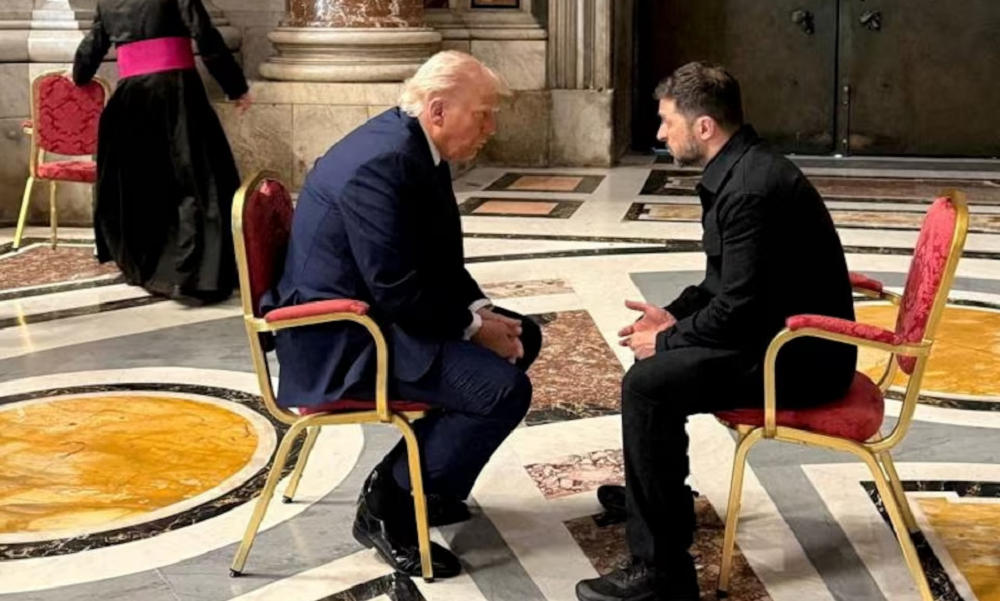
U.S. President Donald Trump and Ukrainian leader Volodymyr Zelenskiy, in Rome for the funeral of Pope Francis, met one-on-one in a marble-lined Vatican basilica on Saturday to try to revive faltering efforts to end Russia’s war with Ukraine.
Zelenskiy said the meeting could prove historic if it delivers the kind of peace he is hoping for, and a White House spokesman called it “very productive”.
The two leaders, leaning in close to each other with no aides around them while seated in St Peter’s Basilica, spoke for about 15 minutes, according to Zelenskiy’s office, which also released photographs of the meeting.
The meeting at the Vatican, their first since an angry encounter in the Oval Office in Washington in February, comes at a critical time in negotiations aimed at bringing an end to fighting between Ukraine and Russia.
In a post on social media platform Telegram, Zelenskiy wrote: “Good meeting. One-on-one, we managed to discuss a lot. We hope for a result from all the things that were spoken about.”
He said those topics included: “The protection of the lives of our people. A complete and unconditional ceasefire. A reliable and lasting peace that will prevent a recurrence of war.”
Zelenskiy added: “It was a very symbolic meeting that has the potential to become historic if we achieve joint results. Thank you, President Donald Trump!”
Steven Cheung, White House communications director, said the two leaders had met privately and had “a very productive discussion. More details about the meeting will follow”.
In one photograph released by Zelenskiy’s office, the Ukrainian and U.S. leaders sat opposite each other in a hall of the basilica, around two feet apart, and were leaning in towards each other in conversation. No aides could be seen in the image.
In a second photograph, from the same location, Zelenskiy, Trump, British Prime Minister Keir Starmer and French President Emmanuel Macron were shown standing in a tight huddle. Macron had his hand on Zelenskiy’s shoulder.
After Trump and Zelenskiy met in the basilica, the two men joined other world leaders outside in Saint Peter’s Square at the funeral service for Pope Francis, who made the pursuit of peace, including in Ukraine, a motif of his papacy.
Italian Cardinal Giovanni Battista Re, who gave the sermon at the funeral service, recalled how Pope Francis did not stop raising his voice to call for negotiations to end conflicts.
“War always leaves the world worse than it was before: it is always a painful and tragic defeat for everyone,” the cardinal said.
A Zelenskiy spokesman had earlier said aides to the two leaders were working on arrangements for a follow-up meeting in Rome later on Saturday. The spokesman subsequently said, after Trump’s aircraft took off from Rome, that the second meeting did not happen, citing the presidents’ tight schedules.
Trump, who has been pressing both sides to agree a ceasefire, said on Friday that there had been productive talks between his envoy and the Russian leadership in Moscow, and called for a high-level meeting between Kyiv and Moscow to close a deal.
Trump had previously warned his administration would walk away from its efforts to achieve a peace if the two sides do not agree a deal soon.
(Reuters)
World
Senior Russian military officer killed in car explosion near Moscow
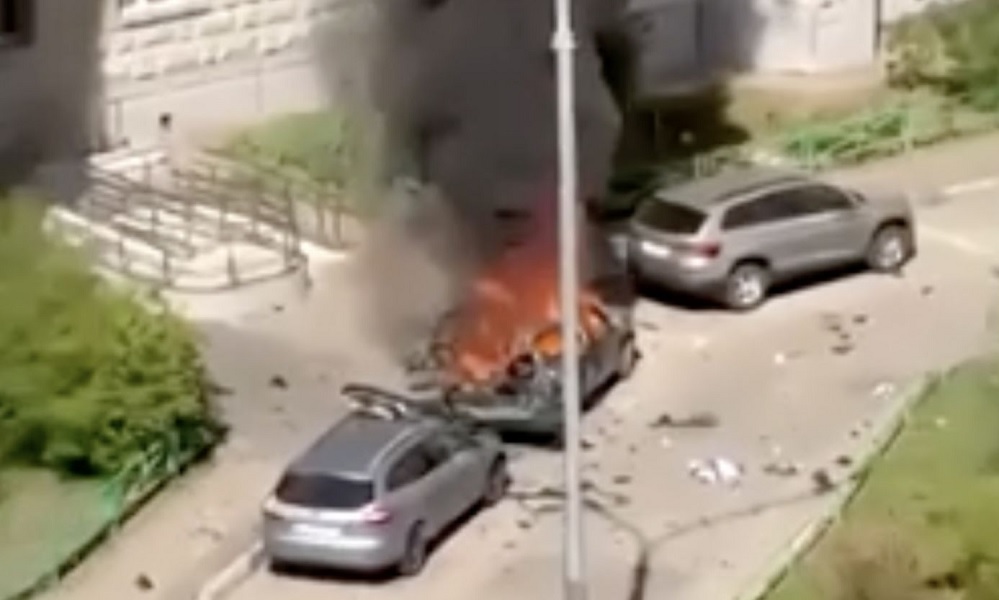
A senior Russian military officer was killed when a car exploded on Friday in the town of Balashikha just east of Moscow, Russia’s Investigative Committee said.
It named the officer as Yaroslav Moskalik, deputy head of the Main Operations Directorate of the General Staff of the Russian Armed Forces, and said it had opened a criminal case into the incident, Reuters reported.
“According to available data, the explosion occurred as a result of the detonation of a homemade explosive device filled with destructive elements,” the Investigative Committee said in a statement.
The statement did not say who might be behind the incident. Several high-ranking Russian military figures have been assassinated since the start of the war in Ukraine in operations blamed by Moscow on Kyiv.
Russian media outlet Baza, which has sources in Russia’s law enforcement agencies, said a bomb in a parked car had been detonated remotely when the officer – who lived locally – walked past.
The Izvestia newspaper published video footage showing a person approaching a line of parked cars outside an apartment complex and an explosion that sent parts of a vehicle flying metres into the air.
Kommersant newspaper said a second person was also killed.
Moskalik, who held the rank of major general, had participated in several high-level Russian delegations, according to defence ministry bulletins and media reports.
He joined the Russian contingent in a meeting in October 2015 of the Normandy Format, a group made up of teams from Germany, Russia, Ukraine and France who oversaw the Minsk agreements designed to end the war between Ukraine and Russian-backed separatist forces that broke out in 2014.
Moskalik represented the army’s General Staff at the negotiations alongside Foreign Minister Sergei Lavrov and Kremlin aide Yuri Ushakov, according to the Kremlin website.
Russia’s RBC newspaper listed Moskalik as a participant in the security subgroup in the Minsk talks.
In December, Ukraine’s SBU intelligence service used a bomb hidden in an electric scooter to kill Lieutenant General Igor Kirillov, whom Kyiv accused of being responsible for the use of chemical weapons against Ukrainian troops.
The SBU did not immediately respond to a request for comment on the reported death of Moskalik.
World
Ukraine ready to hold talks with Russia once ceasefire in place, Zelenskiy says
Zelenskiy said he would be happy to meet U.S. President Donald Trump later this week when they attend the funeral of Pope Francis along with other world leaders.
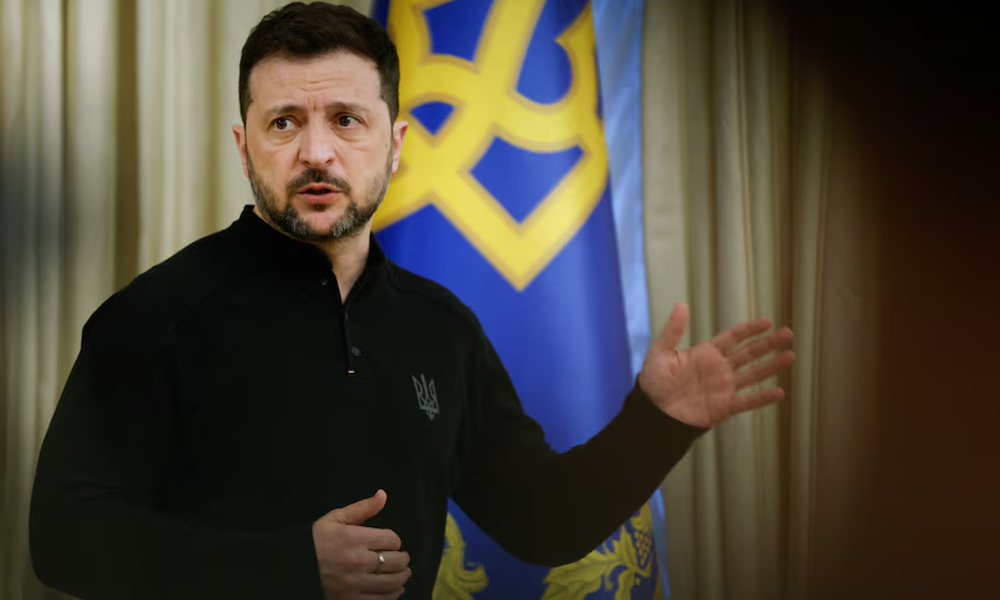
President Volodymyr Zelenskiy said on Tuesday that Ukraine would be ready to hold talks with Russia in any format once a ceasefire deal is in place and the fighting has stopped, Reuters reported.
The Ukrainian leader also told reporters at a briefing that a Ukrainian delegation meeting officials from Western countries in London on Wednesday would have a mandate to discuss a full or partial ceasefire.
“We are ready to record that after a ceasefire, we are ready to sit down in any format so that there are no dead ends,” Zelenskiy said in the presidential office in Kyiv.
“It will not be possible to agree on everything quickly,” he warned, noting numerous highly complex issues such as territory, security guarantees and Ukraine’s membership in the NATO military alliance.
He said that Ukraine would not recognise Moscow’s de jure control of the peninsula of Crimea as part of any deal as such a move would go against the Ukrainian constitution. Russia seized Crimea in 2014 and later annexed it.
Ukraine, he said, would be ready to partner with the United States to restore the work of the vast, Russian-occupied Zaporizhzhia nuclear power plant. There had been no such formal proposal from Washington about that, however, he added.
The talks in London, which are set to bring together officials from the United States, Britain, France, Germany and Ukraine, come amid a flurry of U.S.-led diplomatic efforts to find a way to end Russia’s war with Ukraine, read the report.
In an apparent change of plan, U.S. Secretary of State Marco Rubio will not be attending the talks in London, a State Department spokesperson said on Tuesday, adding that Washington’s Ukraine envoy General Keith Kellogg would attend.
Zelenskiy said he would be happy to meet U.S. President Donald Trump later this week when they attend the funeral of Pope Francis along with other world leaders.
Ukraine, Zelenskiy said, would also step up its diplomatic outreach this week and that he would meet South African President Cyril Ramaphosa, as well as the leaders of Spain, Poland and the Czech Republic.
-

 Sport4 days ago
Sport4 days agoSri Lanka A defeats Afghanistan A by 4 wickets in Abu Dhabi
-

 Business5 days ago
Business5 days agoAfghanistan’s growth prospects remain uncertain amid global uncertainty: World Bank report
-
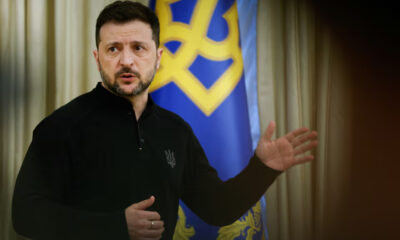
 World5 days ago
World5 days agoUkraine ready to hold talks with Russia once ceasefire in place, Zelenskiy says
-

 Latest News4 days ago
Latest News4 days agoAWCC activates new site in Nangarhar’s Kuz Kunar district
-

 Latest News4 days ago
Latest News4 days agoTarig Ali Bakheet and Japan’s Deputy Foreign Minister discuss Afghanistan’s situation
-

 Climate Change5 days ago
Climate Change5 days agoPowerful earthquake of 6.2 magnitude shakes Istanbul
-

 Business4 days ago
Business4 days agoPakistan’s deputy PM discusses Trans-Afghan Railway Line project with Uzbek FM
-

 Latest News5 days ago
Latest News5 days agoSpecial meeting will be held to launch Afghanistan–Russia joint commission, says Kabulov


